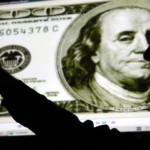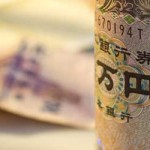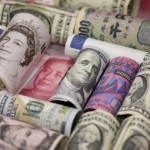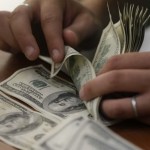Yen Set for Fifth Weekly Loss on Elections
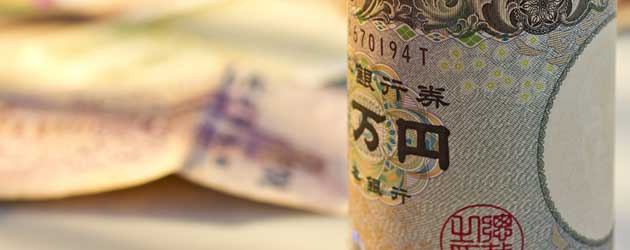
The yen rose, paring the sharpest five-week drop since 1995, after Japan’s Finance Minister Taro Aso said the currency had depreciated too rapidly.
Japan’s currency has fallen against all except one of its 31 major counterparts this week before Japan holds a lower house election next month as Prime Minister Shinzo Abe seeks a fresh mandate for economic stimulus. The euro headed for a second weekly gain before ECB President Mario Draghi speaks at the European Banking Congress today. A gauge of foreign-exchange volatility reached a nine-month high.
“I wouldn’t have been surprised to hear comments like those made by Aso earlier,” said Kengo Suzuki, chief currency strategist at Mizuho Securities Co. in Tokyo. “They would act as a floor for the yen. We could see a correction in dollar-yen down to around 115.”
The yen rose 0.3 percent to 117.84 per dollar at 2:18 p.m. in Tokyo, after tumbling to 118.98 yesterday, the weakest since August 2007. It has fallen more than 9 percent since Oct. 17, the sharpest five-week drop since September 1995. Japan’s currency added 0.2 percent to 147.93 per euro. The 18-nation euro climbed 0.1 percent $1.2554.
JPMorgan Chase & Co.’s global foreign-exchange volatility index reached 8.92 percent yesterday, the highest since Feb. 4, after touching a record-low 5.28 percent in July.
Rapid Surge
“Over the past week the yen-dollar rate has weakened too fast — that’s clear,” Aso said today in Tokyo. “It’s up to the market to set the currency rate and it’s not something where we intervene. Sudden currency changes aren’t welcome, whether it’s up or down.”
Abe will hold a news conference later today after the lower house of parliament was dissolved today to pave the way for the election. Japan’s markets will be closed Nov. 24 for a holiday.
“Dollar-yen is taking a breather after a rapid surge this week,” said Daisaku Ueno, the Tokyo-based chief currency strategist at Mitsubishi UFJ Morgan Stanley Securities Co. “The momentum may drive it up to test 120 by year-end, though I’m not sure if its gains are sustainable.”
The yen’s 14-day relative strength index versus the dollar was at 22, below the 30 level that’s deemed by some traders to indicate that an asset is oversold.
Hedge Fund
Charlie Chan, a former Credit Suisse Group AG proprietary trader who now runs his own hedge fund, is looking to get out of his position selling the yen, judging that the current rout is unlikely to extend to 125 as traders seek to take profits on short positions.
“It might break 120 yen but it won’t be there for long,” Singapore-based Chan, 55, who worked at Credit Suisse for more than 25 years, said in a telephone interview today. “If everybody thinks it’s a slam dunk easy trade, then there will be profit-taking along the way.”
South Korea’s won posted a fourth weekly loss, the longest run of declines since May 2013, amid speculation South Korean authorities will step up intervention to counter the economic impact of the weakening yen.
Bank of Korea Governor Lee Ju Yeol said Nov. 18 that authorities are aware of the adverse impact of the Japanese currency and will act to stabilize the market if needed.
The won closed little changed at 1,113.76 in Seoul, declining 1.2 percent this week, according to prices compiled by Bloomberg.
In the U.S., gross domestic product grew at a 3.3 percent annualized rate in the three months ended September after a 4.6 percent gain in the second quarter, according to the median estimate of economists surveyed by Bloomberg News before the Commerce Department releases figures on Nov. 25.
The Bloomberg Dollar Spot Index, which tracks the U.S. currency against 10 major counterparts, was little changed at 1,097.19, after closing at its highest since April 2009 on Nov. 19. The gauge has risen 0.4 percent this week, up for a fifth straight week.
Source: Bloomberg – Yen Set for Fifth Weekly Loss on Elections









